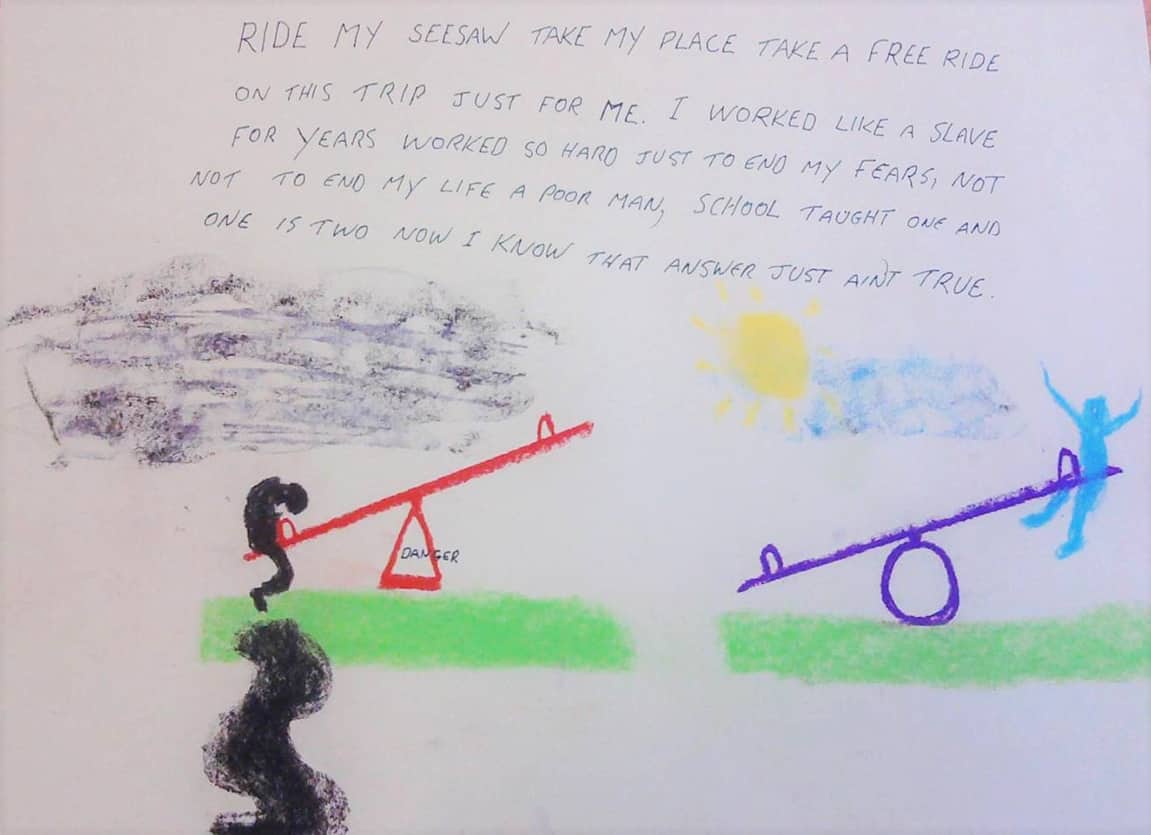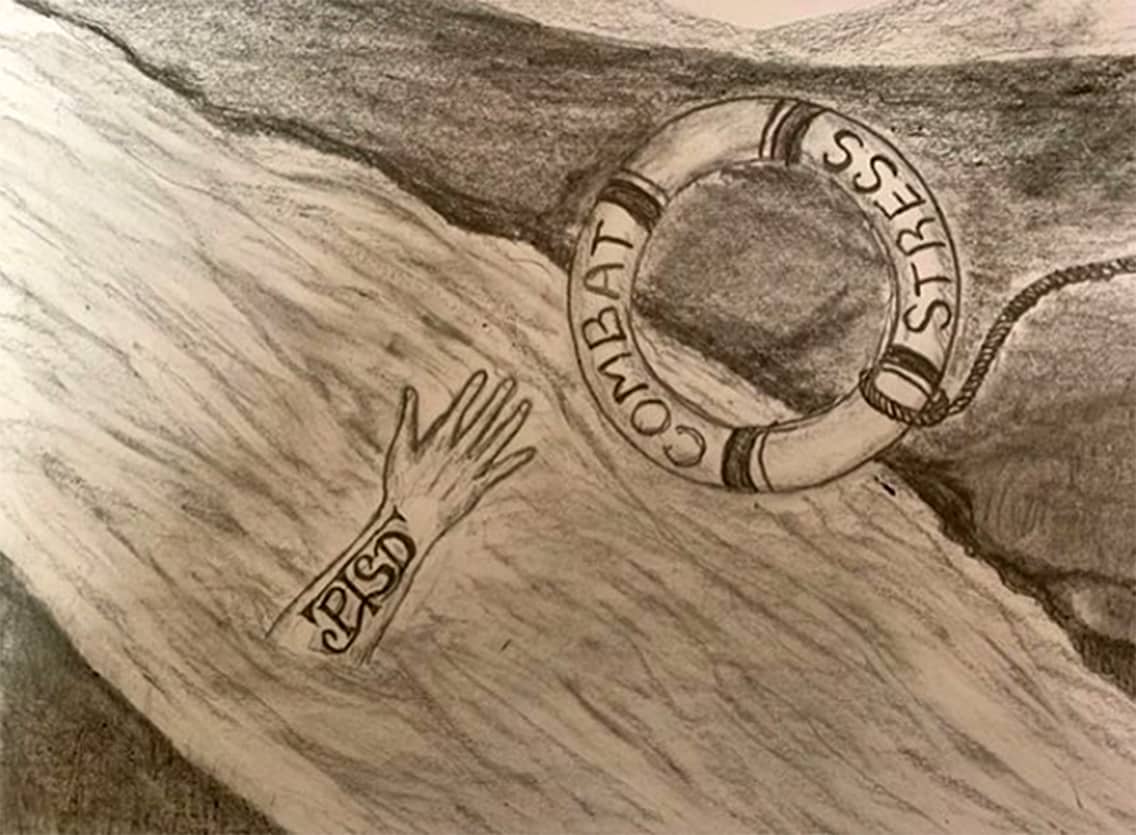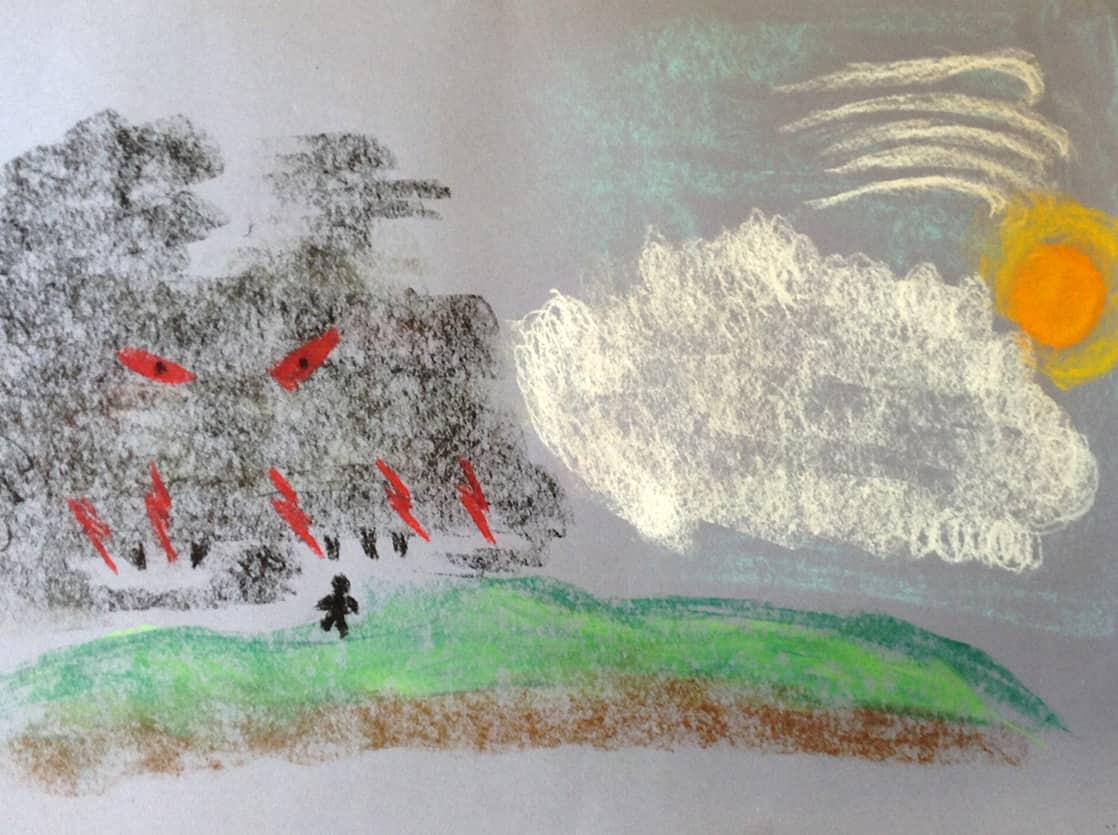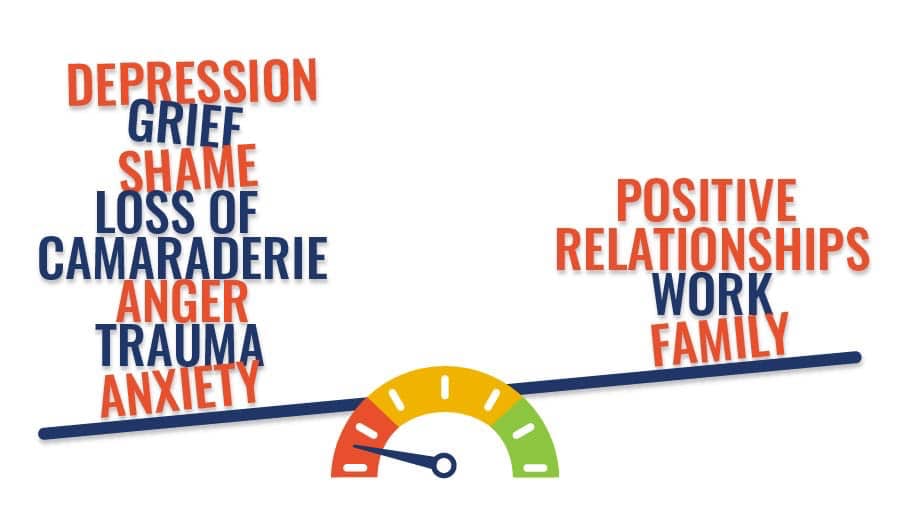Contact us
-
1
-
2
-
3
-
4
-
5
-
6
It will take ~10 minutes to work through Section One
Depression: What is it?
We all feel 'down in the dumps' at times, as clinicians we might refer to this as low mood. If low mood continues over a long period or makes you feel deeply changed, then this might be the sign of something we call depression.



These images were created by veterans during art therapy as part of their recovery journey.
They've been shared to raise awareness and to help others understand.

Quite often, your family might be the first to see that something is different, or maybe a friend has pointed out that you're not quite yourself.
- Have you noticed that you're lacking in energy and motivation?
- Have you been avoiding friends and family?
- Do you put off doing things?
- Do you feel sad, guilty or down much of the time?
- Have you lost interest and/or enjoyment in things?
Finding your way to this page demonstrates a desire and motivation to improve your mood and take good care of your mental fitness. By following the strategies and tips on this page you are taking an important first step towards a more energised you. The exercises we recommend are helpful for both low mood and depression.
SELF-AWARENESS EXERCISE
Imagine, or better still, draw a seesaw. On one side place things that make you feel happy at the moment, and on the other side put things that are making you feel low. How balanced is it looking right now?
Why might veterans struggle with depression?

Depression might be only one part of the picture.
As a veteran, you may struggle with other difficulties too. For example, many veterans with PTSD (post-traumatic stress disorder) also experience painful memories, sleep problems and difficulties with alcohol or drugs.
Depression doesn't always have a clear trigger. In many cases depression develops due to a collection of experiences.
These experiences might have happened during your military service, before or after leaving. Leaving the military can be a major adjustment that sometimes contributes to the difficulties veterans experience.
Depression might be linked to difficult memories. Old memories can surface years later, after the event happened, changing how you feel. Many veterans describe how these memories can literally "jump up and bite you". It might feel like your thoughts are racing or that you will lose control or go mad. We understand and we're here to help.
Additional Resources
Was this page useful?
This information was published on 30 October 2020.
Is there someone I can call and talk to?
Our Helpline is open 24/7, please do not hesitate to call if you need someone to talk to or any guidance.
Combat Stress 24/7 Free Helpline 0800 138 1619.
If you require more urgent help, either yourself or a member of your family feel unsafe, please contact your GP or telephone 111.

